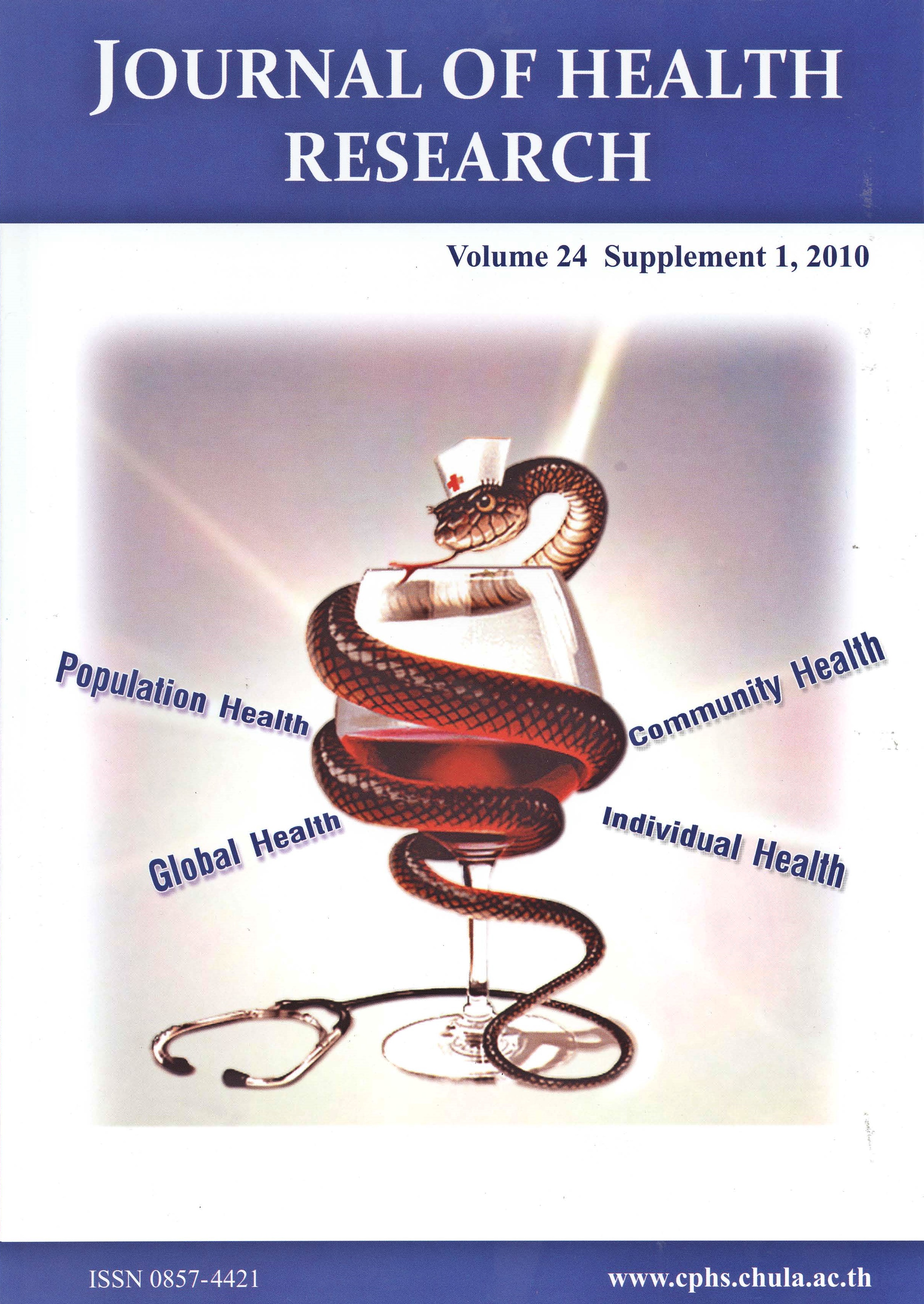Health-Related Quality of Life Among Persons Liveng with HIV/AIDS in 3 Hospitals in Thailand
Keywords:
Health-related quality-of-life, HRQOL, WHOQOL-BREF, Thailand, HIV/AIDS, clinical HIV/AIDSAbstract
A cross sectional study looked at the association between socio-demographic factors, HIV/AIDS clinical history and health-related quality of life HRQOL in people living with HIV/AIDS. The 2008 study used the WHOQOL-BREF-THAI questionnaire which was completed by 3,736 patients in three Thai hospitals. Descriptive statistics and inferential statics (bivariate and multivariate) were used to test association between independent factors and HRQOL. Results: The majority of patients were males (57.8%) with mean age 41.7 (IQR 36 to 46), 91.5% currently on ARV for 5 years (IQR 3 to7), baseline CD4+ count was 359.5 cells/mm3 (IQR 235 to 507.3), 35.1% experienced at least one AIDS related event, 89.8% had good treatment adherence. The following socio-demographic and clinical history factors had statistically significant association with decreased HRQOL: females, young age, separated, low education, low income, unemployed, having low CD4 count, high VL, poor adherence, history of more than two AIDS related events and CDC category C. Perception of HRQOL varied people living with HIV/AIDS. Conclusion: Measurement of HRQOL may assist in understanding the long term effect of disease and treatment people living with HIV/AIDS. The use of the WHOQOL-BREF questionnaire may help in identifying HIV positive patients with low HRQOL and in need of particular support, counseling and care.







